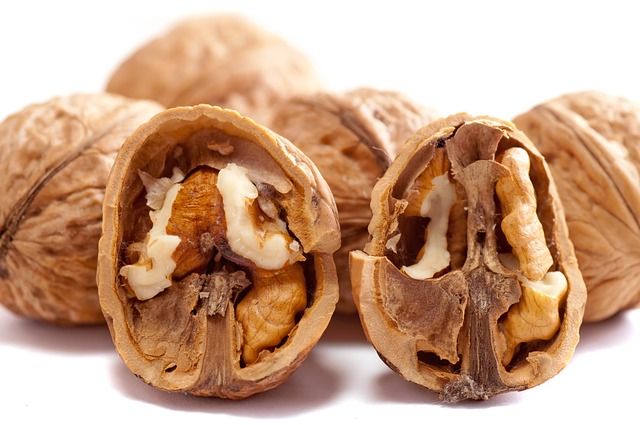New research has found that walnuts could potentially protect against flare-ups in ulcerative colitis.
Inflammatory bowel disease is very common, with three million adults reporting having the condition in 2015. Ulcerative colitis is a form of inflammatory bowel disease, where the colon or rectum becomes irritated and develops small sores called ulcers. The ulcers cause contents to move along rapidly, resulting in frequent bowel movements, as well as rectal bleeding and discharge of pus and mucus. Common symptoms include abdominal and rectal pain, diarrhea, weight loss, and malnutrition.
Ulcerative colitis is chronic, so treatment focuses on reducing inflammation to prevent flare-ups, typically by anti-inflammatory medications. However, new research is looking into beneficial compounds in walnuts as a potential measure of protection. A study at the University of Connecticut and Texas A&M University published in the journal Nutrients examined the effects of walnuts on medically-induced ulcerative colitis in mice.
Groups of mice ingested ground whole walnuts in varying quantities (0 g/kg body mass, 3.5g/kg, 7g/kg, and 14g/kg) for two weeks. Researchers then induced colonic mucosal injury, a symptom of ulcerative colitis, five days after the end of the diet in the same group of mice by administering an ulcerogenic agent called dextran sodium sulfate (DSS). Mice were examined at either two or ten days following DSS withdrawal.
The group of mice that ingested 14 grams of walnuts per kilogram of body mass daily for two weeks exhibited significantly less severe ulceration than the group that did not ingest walnuts at the ten-day examination period. Walnuts were associated with increased bodily concentrations of many beneficial polyunsaturated fatty acids, such as docosahexaenoic acid (DHA) and 9-oxo-10(E), 12(E)-octadecadienoic acid (9-oxoODA). DHA, in particular, has been shown to reduce the risk of heart disease by decreasing blood triglycerides and increasing HDL cholesterol. Furthermore, walnuts appeared to increase the levels of S-adenosylhomocysteine (SAH) and betaine, which are both important for fatty acid oxidation.
This study shows that walnuts may be beneficial in preventing flare-ups in ulcerative colitis, but more research is needed to determine if this relationship is causal. Also, further research is needed to determine what particular compounds in walnuts have this effect.
Written by Avery Bisbee
References:
Higuera, V. (2019, June 30). What to Know If You Have Ulcerative Colitis. Retrieved August 13, 2019, from https://www.healthline.com/health/ulcerative-colitis#treatments
McCulloch, M., MS, RD. (2018, September 23). 12 Health Benefits of DHA (Docosahexaenoic Acid). Retrieved August 13, 2019, from https://www.healthline.com/nutrition/dha-benefits#section2
Nakanishi, M., Matz, A., Klemashevich, C., & Rosenberg, D. W. (2019). Dietary Walnut Supplementation Alters Mucosal Metabolite Profiles During DSS-Induced Colonic Ulceration [Abstract]. Nutrients,11(5). doi:10.3390/nu11051118
Vardilos, D. (2019, August 12). Walnuts Show Protection Against Ulcerative Colitis in Early Study. Retrieved August 13, 2019, from https://today.uconn.edu/2019/08/walnuts-show-protection-ulcerative-colitis-early-study/#
Image by Pera Detlic from Pixabay



